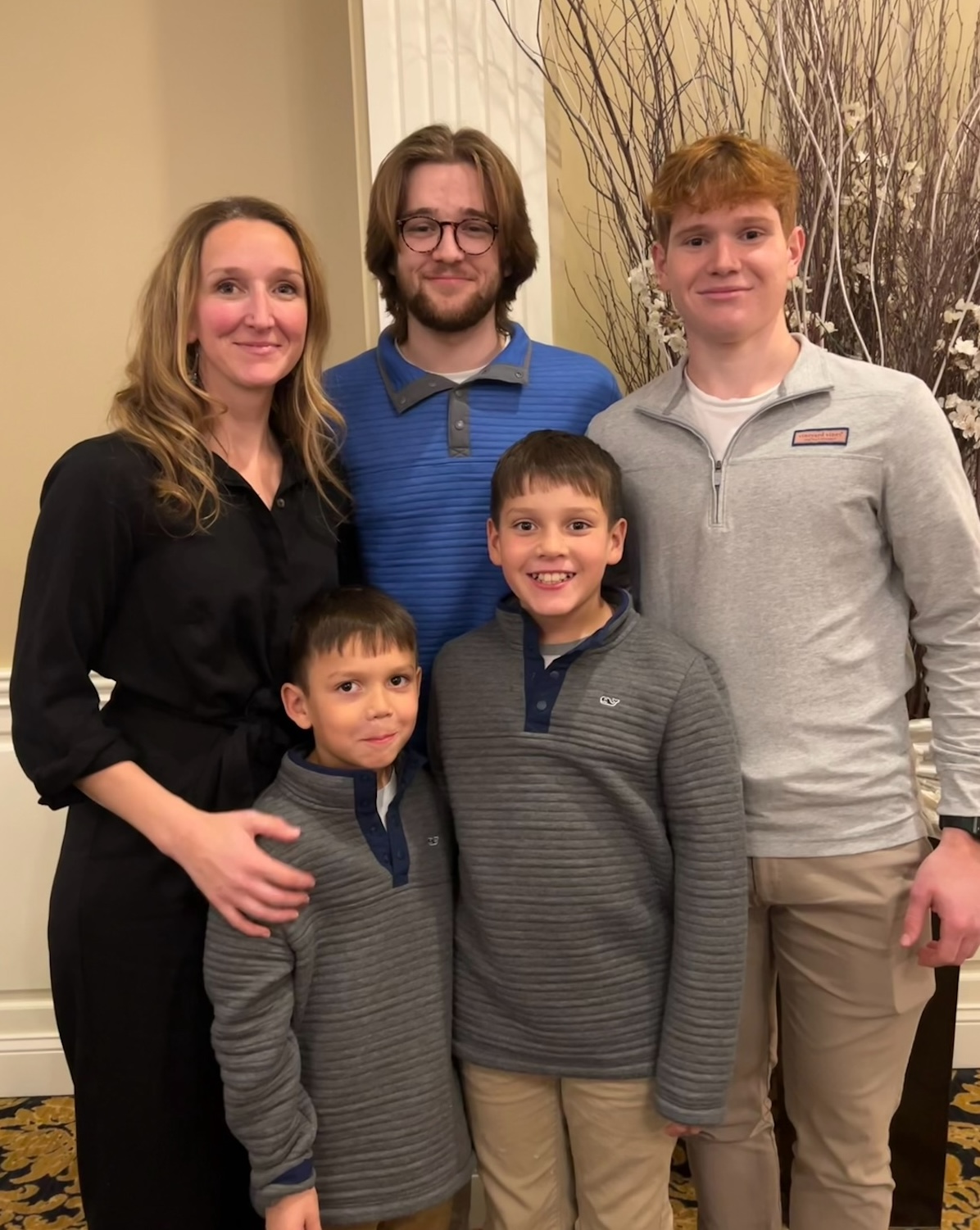Elizabeth Lawton is an online MPH student, nurse practitioner and mom of four boys, passionate about reducing barriers to care for vulnerable groups within her community. In this interview, Lawton shares how her drive to provide equitable patient care led her to pursue her master’s in public health at Brown, her passion for providing care to those with substance use disorders and how mobile clinics could be a viable care model to help improve access to care.
What led you to pursue an education in public health?
I have worked in health care for over 15 years: 10 years as a registered nurse, and now as a family nurse practitioner. I began my career in the hospital setting and later started seeing patients in their homes in suburban and rural areas. While delivering in-home care, I quickly discovered how big of a role an individual’s social determinants of health play in their health outcomes. This inspired me to go back to school to get my master's in nursing to become an Advanced Practice Registered Nurse (APRN) to help better serve my patients.
Through my work as an APRN, I observed that many barriers to care are systemic. Rather than pursue a doctorate in nursing, I decided the next step was to pursue my master's in public health, to give me the tools to identify opportunities to improve the delivery of vital services and improve population health for vulnerable groups.
What did you discover while providing in-home care to patients?
It was eye-opening to go from seeing patients in the hospital environment to providing care in neighboring cities, where many of my patients' basic needs were not met. I discovered that the way we administer care management instructions to patients isn't always how things are interpreted or applied in patients' lives.
Many patients were trying to manage complex medical needs without access to consistent housing or running water; then they were being penalized by a health care system that is focused on efficiency. Many of these patients were labeled as non-compliant and even discharged from practices for missing appointments. I recognized that the health system often does not take into consideration how transportation, housing insecurity and untreated mental health impact an individual’s ability to seek consistent care.
How do you address the barriers to care within your community as an APRN?
I currently work as a family nurse practitioner at Wheeler Health, a Federally Qualified Health Center (FQHC). FQHCs provide primary care services for medically underserved communities, regardless of an individual’s ability to pay. Our organization provides equitable and comprehensive care by utilizing a patient-centered medical home with a multidisciplinary approach.
At Wheeler Health, we use a model that integrates behavioral health care within primary care because it's hard to separate an individual’s mental health from the rest of their health and well-being. Our clinic has behavioral, mental and dental health clinicians on staff. We see patients across the lifespan.
In addition to primary care, I provide medication-assisted treatment for people with substance use disorders. It reduces the barriers to care for people who are looking to get treatment for that, as well within our primary care model, which is something I am very passionate about.
Our clinic takes a harm-reduction approach. We do not penalize patients if they've used or are struggling with relapse. We aim to provide patients with the safest options to assist them—depending on their level of readiness. We offer infectious disease and HIV screenings, provide Narcan instructions for overdose prevention, offer medications like Suboxone to help people who are trying to stop using and connect patients with resources. We also provide fentanyl test strips, because a lot of other drugs are laced with fentanyl. There are many cases where drugs are not what the user may think they are.
Why are you passionate about providing care to those with substance use disorders?
I am passionate about promoting harm reduction and substance use treatment partially because I believe in my organization’s mission and because my father struggled with a substance use disorder. My father has since passed away due to complications from his substance use and my experience with him added a bit more of a human aspect to it. I think years of seeing patients in a variety of settings have reinforced that feeling too. When you take the time to connect with somebody, you can see that they are a human, not just their diagnosis or their disease.